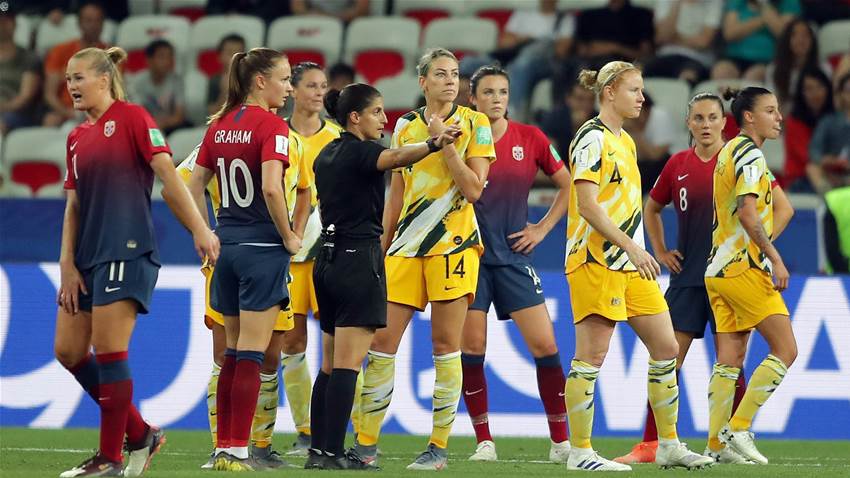As the dust settles on the Matildas exit from the FIFA Women's World Cup, there have been many ideas thrown up as to what the next steps should be.
Another factor and one that has also been tossed up in the men's game is the cost of the sport.
It's not cheap with National Premier League (NPL) clubs season expenses running into $2,000 or more depending on where a player lives. That's not including the cost of fuel to travel to training or games among other expenses.
Players also have the choice of playing in the local leagues where prices are much cheaper, playing another sport completely or just dropping out when it becomes to expensive.
Let's not forget about the differences between NPL Women's programs between the states and territories too. States like Western Australia, Northern Territory and Tasmania don't even have an NPL Women's or girls competition while South Australia only have an NPL Women's competition.
So players in these states are already at a disadvantage of trying to achieve their dream of becoming the next Matilda because they don't have the same development pathways as those on the east coast.
At a national level, the Young Matildas haven't made a U20's World Cup since 2006 while the Junior Matildas have never made one. Japan, China and North Korea lead these youth spaces and are the powerhouses in women's youth football in Asian especially Japan, who won the 2018 U20 Women's World Cup.
How can Australia ensure they remain competitive at an international level? Does FFA have an answer for this?
It's why youth development needs to be an area that needs reform.
FFA, state federations and clubs must look at these pathways to see why this is happening. It's been going on for too long now and a gap is forming between the current Golden Generation and the future stars of the game.
Leadership
It goes without saying but there needs to be strong leadership throughout women's football to direct the future of the game.
"I think FFA really need to provide strong leadership in women's football to make associations, clubs and schools aware of what might be the inhibiting factors for the growth of football for girls and women," Moriarty said.
These leaders don't just have to be female but they have to be people who are passionate and want real change in women's football here in Australia.
"There is still quite a lot of behaviour that doesn't demonstrate equality and it's why the council has adopted as its charter, and why through advocacy and through keeping stakeholders accountable that we will ensure equality in football for women and girls," Moriarty said.
With strides being taken by nations across the globe to ensure the future of women's football, Australia needs to follow or they will be left behind.
Related Articles

'Timing not right': Montemurro's verdict on Matildas vacancy

Matildas: 'Fourth at the Olympics is honestly the worst place you could come'
.jpg&h=172&w=306&c=1&s=1)












